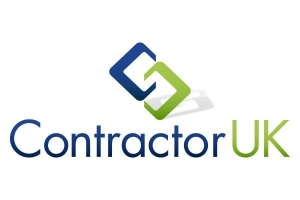Two more financial firms have foisted a finite number of renewals on hundreds of limited company contractors, as part of their bid to “sidestep” IR35 reform, ContractorUK can reveal.
Mirroring HSBC’s policy last month, M&G Investments and Morgan Stanley have each internally said that their operations will no longer engage PSC contractors after certain dates this year.
The furthest away of those differing dates is December 2019 – in place at M&G Investments, but the uncertainty for PSCs at the company seems greater than for those at HSBC or Morgan Stanley.
'Sit tight'
In fact, HSBC and Morgan Stanley contractors have been given ‘options,’ such as working inside IR35, but M&G’s have only been told “something will be in place” post-December.
The absence of a solution, mooted to be incoming between M&G and Resource Solutions (RS) – which also supplies contractors to HSBC, is making most contractors “sit tight,” a source also said.
A request for Resource Solutions to comment on how it is helping clients with IR35 reform was not responded to. But a spokesman for Prudential, parent of M&G Investments, said:
“We are still finalising our approach to IR35, and [a] communication will follow to all of our impacted contractors once we have done this.”
The M&G spokesman also told ContractorUK: “In line with the rest of the financial services market, it is imperative we operate a fully-compliant, revised engagement model.”
'Unable to wait'
The latter seems to be code for HMRC requiring large firms to have a Senior Accounting Officer in place, to take responsibility for their operation’s tax and accounting arrangements.
And SAOs at ‘qualifying companies’ can be fined personally, as can their companies, if they cannot show HMRC Customer Compliance Managers that robust risk processes are in place.
“SAOs are unable to wait to see the results of consultations, potential ‘solutions’ or to see what the draft legislation looks like,” says ex-tax official Kate Cottrell, an IR35 specialist.
“The fact that there are different dates [that PSC contractors will stop being engaged after]…suggests that these proposed actions are somehow linked to the SAO rules, as the dates for declarations [to HMRC] are tied to the accounting year of the particular company.”
'Not sure of the ins and outs'
Six months before IR35 reform is due to bite, October 2019, is the deadline which Morgan Stanley (MS) contractors are under, as the bank will cease and desist PSC hiring after then.
“But I’ve got to give an indication of which one [of the following options I want to go for] by tomorrow end of play,” says an MS contractor, clearly feeling pressured to make a decision.
“[The options are] leave MS; go full-time or go PAYE. [But] I’m not sure of the ins and outs of going PAYE…I’m also not sure about if I want to tie-up [my] company and go full-time.”
Advising on those financial impacts, including ‘go PAYE’ seeming to indicate an ‘inside IR35’ contract, is Broome Affinity, which the PSC shared his ultimatum from Morgan Stanley with.
'Uncertainty fuelling the flight'
The accountancy firms’ co-founder Alan Broome said: “This [communication from the bank] feels like the thin edge of a rather large wedge.
“Other banks are rolling out similar approaches…[though] ideally everyone in the hiring chain should be sitting down and hammering out new engagement terms.
“Unfortunately, there’s little evidence of this. What I do see is a lot of contractors winding up their companies… [as] many are retiring or taking staff positions. It's the uncertainty that's fuelling this flight”.
Asked about its IR35 reform policy, Morgan Stanley said it would not comment.
Online however, a staffing agent (unconnected to Morgan Stanley) hinted that the bank’s reaction to the 2020 reforms was favourable.
'Sitting on the fence'
“At least they [Morgan Stanley] are not sitting on the fence and are communicating clearly their corporate plan. It leaves PSCs in no doubt”, said the agent, Louise Wood.
The contrast is M&G Investment’s reaction. “There is no clue in the communications contractors have so far received as to what happens after their final extension in December.”
A recruiter who once placed contactors at M&G also said: “The suggestion is that RS are working with M&G on some kind of workaround -- but when or what is unknown.”
Seb Maley, chief executive of Qdos Contractor, sounded unimpressed with all the firms – HSBC, M&G Investments and Morgan Stanley, implying none of their policies should be encouraged.
'Sidestep IR35 reform'
“By the sounds of it, these companies will stop engaging contractors in due course, which is short-sighted and unnecessary…as they seemingly attempt to sidestep IR35 reform,” he said.
“Offering contractors such ultimatums will simply deter these workers, who would much prefer to work with clients that are able to set their tax status fairly, allowing them to continue providing a contract for services, outside IR35.”
But not all such workers -- at least not so far. “Two contractors I know [at M&G] are going to accept the final extension [until December],” says the ex-M&G agent, “so it’s ‘wait and see’.
“For now, they like it there. They like the work; the conditions and the work-life balance. There’s also great technology, so they plan to sit tight and wait until the contract is up.”
'Blanket decisions'
However, Broome Affinity believes that there are other reasons why contractors will toe the line.
“There does seem to a tacit acceptance, certainly from bums-on-seats contractors, that this [taxing reform to how off-payroll workers operate] has been coming,” Mr Broome said.
“The obvious, and very real, potential outcome of this is that the genuine contractors are hoovered up in ‘blanket’ decisions along with the rest.”
A critic of such across-the-board IR35 status decisions, Qdos Contractor offered some guidance for contractors’ clients yet to fully formulate their 2020 strategy:
“In theory, a consultancy providing – and managing -- a project on behalf of an end-client will take on the responsibility for determining the status of any contractors it engages.
“This is because the services are, as HMRC describes, ‘fully contracted out’ and therefore the engager for the purposes of IR35 is the consultancy rather than the ultimate client.”
'Bit of a get-out'
The advisory’s Mr Maley says he thinks many end-users regard the ‘fully contracted out’ model as a "bit of a get-out," and so are pushing consultancy models onto agencies to absolve themselves of responsibility and risk from next April.
“But it’s a dangerous game to play,” he cautioned, referring to both consultancies and Statements of Works. “If it isn’t genuine in nature, HMRC will very quickly see through any contractual agreements.
“This applies particularly where there are already incumbent workers and an organisation is looking to change the nature of the arrangement ahead of April 2020. It will be very difficult to truly alter the nature of an existing project or relationship to be one that is genuinely contracted out.”
'Gift from God'
Nevertheless, for some commercial parties, including consultancies but potentially agencies too, the off-payroll working proposals for the private sector represent “a gift from God.”
The former M&G agent also said in statement: “The big Recruitment Process Outsourcers are all pitching for the same thing.
“A magic wand in the form of a managed service. My fear is that they don’t really care about what’s best for the client i.e. keeping their existing highly-skilled and experienced contractors – it’s all about a massive sales opportunity for the RPOs.”
'The Contractor Departure Lounge'
A contractor ‘on the ground’ at M&G said: “There are probably less than 100 contractors on site at the moment, and the work is being gradually shifted towards permies, while the contractors left are rolling off naturally, in line with project end-dates.
“And those of us who are left are referring to it here as ‘The Departure Lounge.’ Yet most of us are old hands and are all pretty realistic. There is no point making plans for ‘What Ifs.’”
Online yesterday, debate centred on the size of wage cuts that engagers may make to stop PSC-turned-permies dragging their profitability. But the dent for some PSCs could be much greater.
'Too good, for too long'
“One client of mine, when we discussed the potential drop of about 40% in his ‘take-home,’ said something along the lines of, ‘We've had it too good for too long,’” Mr Broome recalled.
“Then he said, ‘It's not like I'll be getting 40% too little, but rather I've been getting 40% too much.’ Personally, I don't think such pragmatism is common, or even necessarily correct.”
But end-users’ IR35 reform ultimatums to contractors, which stem from the ‘cease and desist’ PSC model and start with capped renewals, are common. They may even become ubiquitous.
“The rules for SAOs are, in my view, why these financial companies are making their [IR35 reform] announcements now,” says Ms Cottrell, co-founder of Bauer & Cottrell. “ No doubt we will be seeing many more fairly soon.”











 The Bowers Partnership Limited
The Bowers Partnership Limited